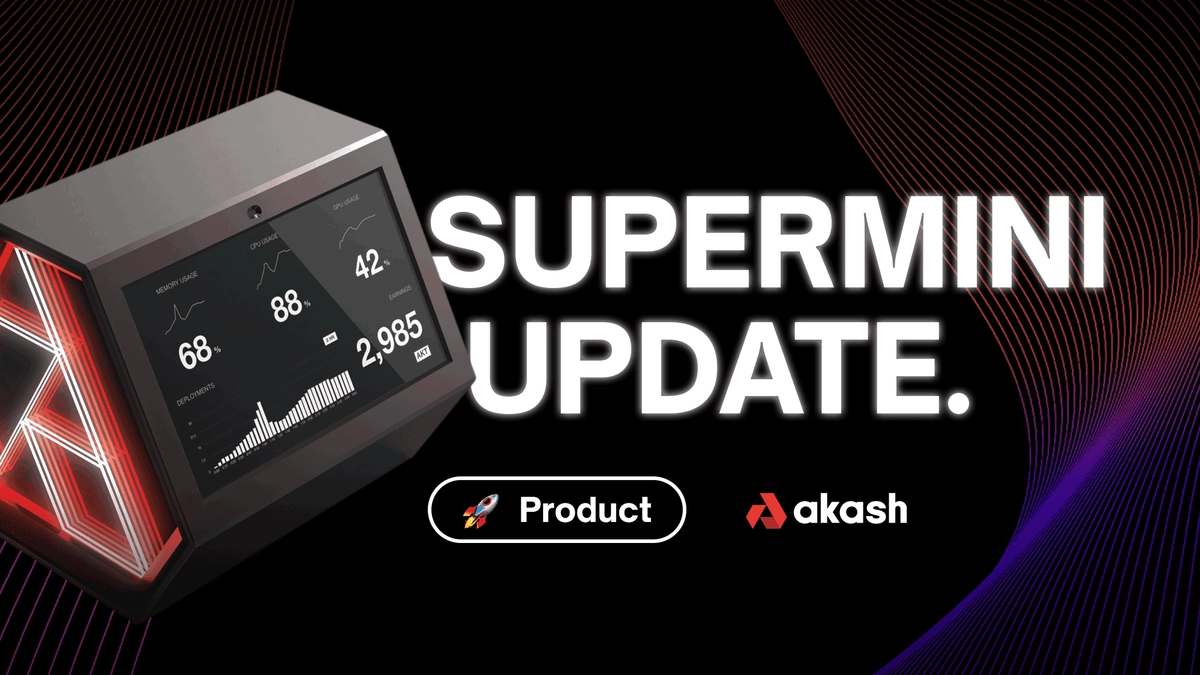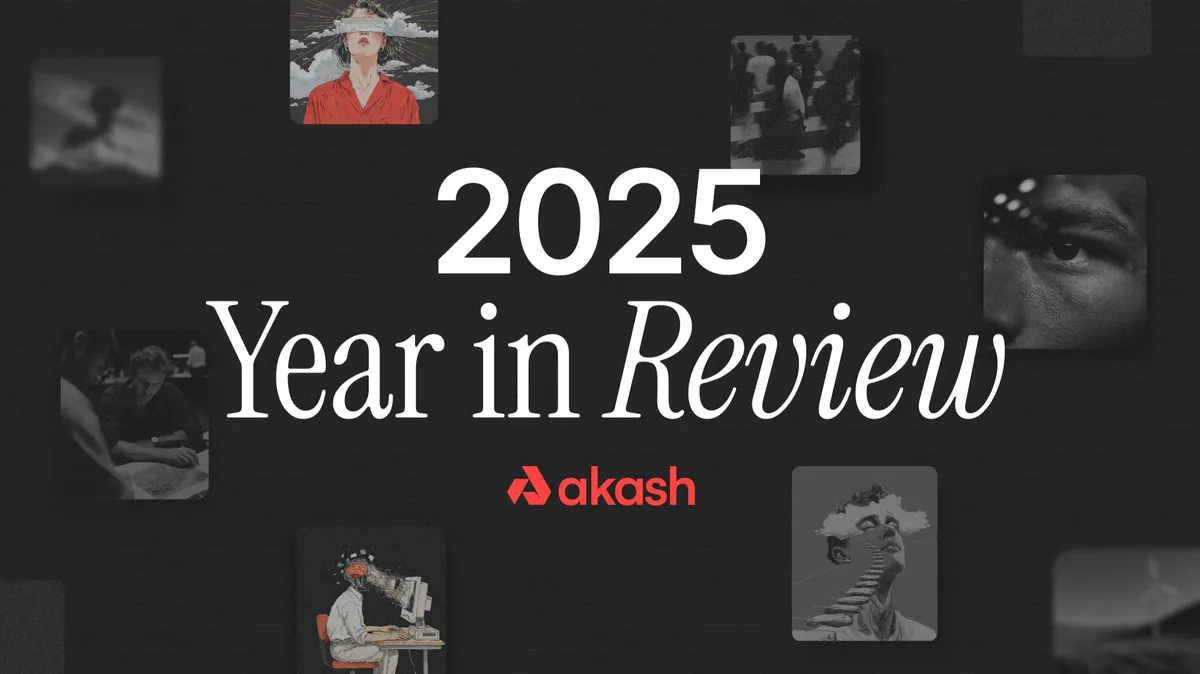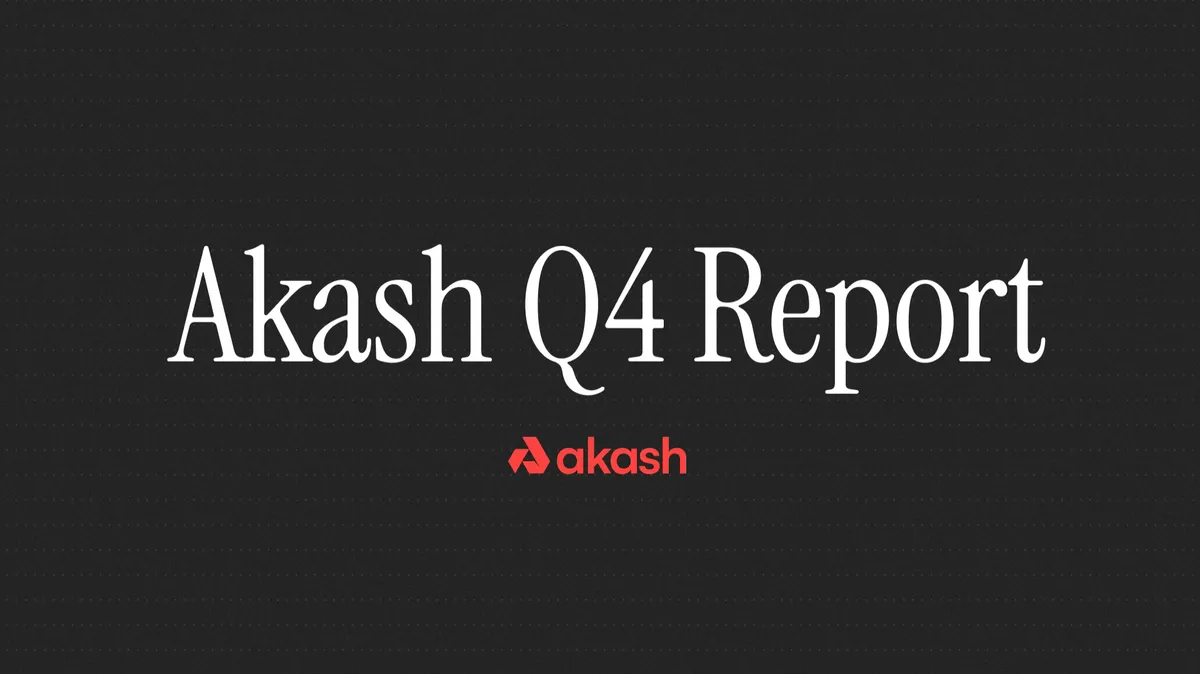
We have an important announcement today, but first, I want to give a brief update on how Akash Network is progressing. We are seeing strong and consistent growth since releasing Akash’s distributed peer-to-peer marketplace for cloud compute in March.
New deployments have been averaging about 200 per day for several weeks, active deployments are steadily increasing, and we crossed the 25,000 deployments milestone in just six months.
The adoption continues to grow, with developer tooling, guides, and integrations rising alongside deployments. Akash is meeting a real market demand at a fraction of the cost of centralized cloud services.
Today, we are at a critical phase in Akash’s growth—one that sometimes includes pivots to our path forward to ensure the long-term success of the network, so we are postponing the Akash Supermini. While I know many of you have been eagerly anticipating the Supermini, this is a situation where a good idea came at the wrong time.
People think focus means saying yes to the thing you’ve got to focus on. But that’s not what it means at all. It means saying no to the hundred other good ideas that there are. You have to pick carefully. I’m actually as proud of the things we haven’t done as the things I have done. Innovation is saying no to 1,000 things.
Steve Jobs
In October of 2019, just before the COVID-19 pandemic put the entire world on pause, we demonstrated the flexibility of our platform by running Akash’s software on a low-power ARM-based Raspberry Pi. The “Akash Pi” was the genesis of the Akash Supermini. Engineering teams around the world use Pis for testing, running scripts, and even acting as servers on test networks. The Pi is a versatile device, but we knew the market wanted something with high performance for running machine-learning workloads and supporting production applications.
We set out to design a miniature supercomputer for the home office, a powerful machine that you could use to offload heavy workloads and rent to others looking for high-performance compute. The Supermini’s design was fit for the home office, and the spec sheet of its hardware included a powerful GPU. We believed that a GPU was critical to support machine learning. Since we needed to explore the viability of the Supermini both technically and economically, we planned to make just 300 units.
We intended the Supermini to be a consumer-focused appliance that would enable almost anyone to enjoy the benefits of cloud computing while maintaining data sovereignty. Excess compute from Supermini could be contributed to Akash’s decentralized cloud to support the network and earn passive income in AKT. This goal is still our long-term intention, but as Akash has grown over the last couple years, we found that introducing the Supermini now would be premature for four key reasons.
The Market has Spoken
First, the market is demanding a different product, and we are responding to the massive growth in deployments on our network. We have seen impressive growth, reaching the first hundred daily application deployments in 120 days, but the next hundred in less than 30. Now we are seeing roughly a doubling of deployed applications every month. A few star applications like Osmosis DEX and Skynet (a decentralized S3 alternative) live on Akash’s open-source decentralized cloud, and ShapeShift is considering using Akash for its decentralized autonomous organization (DAO).
We are in a crucial phase of building application reliance on Akash, particularly for workloads that have no real alternatives among centralized providers, such as data services for DAOs. We are still early in our journey, but Akash is maturing quickly, both technologically and in the diverse set of applications that require a permissionless, decentralized cloud. As reliance on Akash grows, we will be better positioned to reconsider the Supermini to take full advantage of its utility and powerful use case.
Technical Support
The second reason is technical. GPU support on Akash is still under development, and this feature is necessary to make the Supermini profitable for its users. Until we roll out GPU functionality, the Supermini simply would not work as intended. In order for the Supermini to be viable, Akash needs multitenant GPU infrastructure, and we are several months away from testing and deploying that functionality. Right now, Akash supports CPUs, storage, and memory. Building out bandwidth marketplaces and working around the limitations of home bandwidth also need to be deployed before the Supermini could work properly. We strongly believe it would be better not to launch a product that would leave customers waiting for the full functionality to be unleashed.
Economic Viability
The third reason is economic. Today Akash is focused on converting data centers into Akash providers because it’s more competitive than launching home-based hardware.
Our number one risk is competition from datacenter compute. Why would anyone choose a Supermini over a compute cluster in a data center?
We can compete on cost, but we need a critical mass of users first to make contributing compute economically viable for the Supermini.
The Revolution Will Not Be Centralized
The fourth reason is more philosophical. The Supermini is intended to be a managed product, a plug-and-play appliance. Our team would have directly managed firmware development and update deployment so that the Supermini owners would not need technical expertise. But as a result, releasing Supermini now would potentially introduce too much centralization to the network, which is against our ethos at Akash. Once Akash is more fully built out, the risks posed by a centrally managed appliance like the Supermini will be diminished, but we are not there yet.
What’s Next?
For those of you who preordered a Supermini, we want to make sure that you are properly compensated for your enthusiasm and trust in our vision. We recognize that your deposit came with an opportunity cost that went beyond just the hundred dollars you spent, so for each Supermini unit reserved, you will be refunded in full plus an additional 100 AKT. We hope that this refund will do more than just give you back your money. We hope that it will demonstrate our commitment to Akash’s bright future. You will be receiving an email to the address that was used to place your order with reimbursement details and instructions on claiming your AKT.
Onward and Upward
As I mentioned at the beginning, Akash is gaining momentum, and we will continue capitalizing on that. Later down the road, we can revisit the idea of the Supermini. It is still a good idea for the right time. But for now, we will be pouring our energy into making sure that Akash fulfills its promise of a decentralized cloud ecosystem that is permissionless and censorship-resistant—delivering data sovereignty to all.


